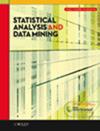分层学习:一种在协变量移位下改善学习的通用统计方法
IF 2.1
4区 数学
Q3 COMPUTER SCIENCE, ARTIFICIAL INTELLIGENCE
引用次数: 1
摘要
当训练集不具有代表性时,我们提出了一种简单的、有统计学原则的、理论上合理的方法来改进监督学习,这种情况被称为协变量移位。我们在因果推理中建立了一个完善的方法,并表明协变量移位的影响可以通过对倾向得分的调节来减少或消除。在实践中,这是通过在基于估计的倾向分数划分数据构建的层内拟合学习器来实现的,从而导致近似平衡的协变量和大大改进的目标预测。我们将整个方法称为分层学习(Stratified Learning)或StratLearn。我们证明了这种通用方法在两个当代宇宙学研究问题上的有效性,优于最先进的重要性加权方法。我们在更新的“超新星光度分类挑战”中获得了最佳报告AUC(0.958),并且我们改进了现有的斯隆数字巡天(SDSS)数据中星系红移的条件密度估计。本文章由计算机程序翻译,如有差异,请以英文原文为准。
Stratified learning: A general‐purpose statistical method for improved learning under covariate shift
Abstract We propose a simple, statistically principled, and theoretically justified method to improve supervised learning when the training set is not representative, a situation known as covariate shift. We build upon a well‐established methodology in causal inference and show that the effects of covariate shift can be reduced or eliminated by conditioning on propensity scores. In practice, this is achieved by fitting learners within strata constructed by partitioning the data based on the estimated propensity scores, leading to approximately balanced covariates and much‐improved target prediction. We refer to the overall method as Stratified Learning, or StratLearn . We demonstrate the effectiveness of this general‐purpose method on two contemporary research questions in cosmology, outperforming state‐of‐the‐art importance weighting methods. We obtain the best‐reported AUC (0.958) on the updated “Supernovae photometric classification challenge,” and we improve upon existing conditional density estimation of galaxy redshift from Sloan Digital Sky Survey (SDSS) data.
求助全文
通过发布文献求助,成功后即可免费获取论文全文。
去求助
来源期刊

Statistical Analysis and Data Mining
COMPUTER SCIENCE, ARTIFICIAL INTELLIGENCEC-COMPUTER SCIENCE, INTERDISCIPLINARY APPLICATIONS
CiteScore
3.20
自引率
7.70%
发文量
43
期刊介绍:
Statistical Analysis and Data Mining addresses the broad area of data analysis, including statistical approaches, machine learning, data mining, and applications. Topics include statistical and computational approaches for analyzing massive and complex datasets, novel statistical and/or machine learning methods and theory, and state-of-the-art applications with high impact. Of special interest are articles that describe innovative analytical techniques, and discuss their application to real problems, in such a way that they are accessible and beneficial to domain experts across science, engineering, and commerce.
The focus of the journal is on papers which satisfy one or more of the following criteria:
Solve data analysis problems associated with massive, complex datasets
Develop innovative statistical approaches, machine learning algorithms, or methods integrating ideas across disciplines, e.g., statistics, computer science, electrical engineering, operation research.
Formulate and solve high-impact real-world problems which challenge existing paradigms via new statistical and/or computational models
Provide survey to prominent research topics.
 求助内容:
求助内容: 应助结果提醒方式:
应助结果提醒方式:


